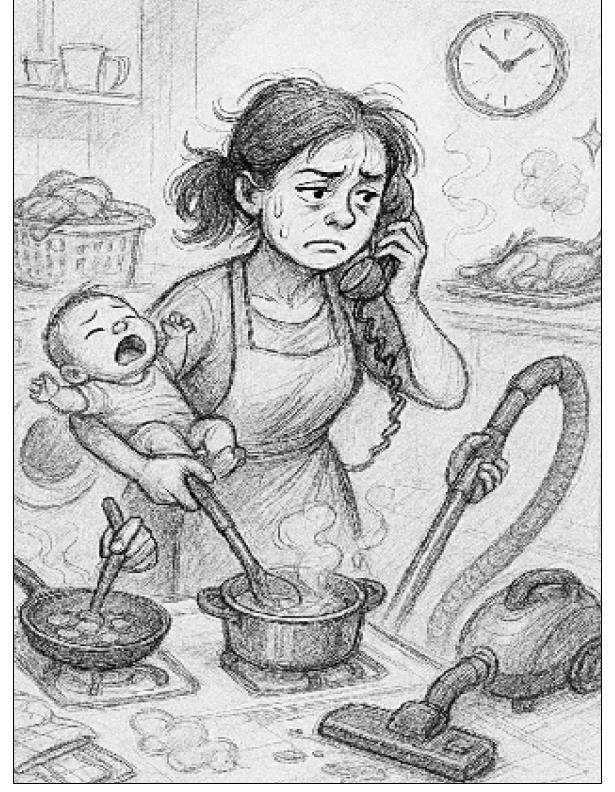Exploited workers
2025-07-25
IN private hostels, domestic workers mostly women from underprivileged or rural backgrounds are hired under the promise of a modest salary, food and shelter. Once employed, they find themselves caught in a cycle of exploitation that goes unnoticed and unaddressed.
For as little as Rs12,000 every month, these ill-fated women are expected to work tirelessly often from dawn to midnight.
The free meals are frequently leftovers, barely sufficient, and the so-called accommodation might mean sleeping on the kitchen floor or a cramped storage room. They have no job security, no health coverage,andnolegalrecoursein case of abuse.
Verbal humiliation, denial of basic rights, and physical exhaustion have become the norm. Many are refused weekly off days or medical attention, and those who voice complaints are often silenced through threats of dismissal. Even underage girls have been found workingin such environments, deprived of education and exposed to unsafe conditions.
This exploitation persists due to weak labour laws, lack of inspections, and a rogue cultural mindset that dehumanises domestic labour. Most private hostels operate outside the regulatory lens, with no accountability for their treatment of workers. Adding to this injustice is theinternalised patriarchy prevailing within these spaces.
Male domestic workers despite being in the same position of servitude often treat their female co-workers with sheer condescension or outright disrespect.
Instead of solidarity among the oppressed, there exists a rotten hierarchy that mirrors the broader societal structures of discrimination and misogyny, making the women doubly vulnerable to both the employer and their male counterparts.
Enforcing minimum wage laws, mandating written contracts, and holding hostel administrations accountable are necessary steps. Until then, these silent workers will, unfortunately, continue to carry our comfort on their tired backs without even a modicum of justice.
Rakhshanda Abbas Gilgit




